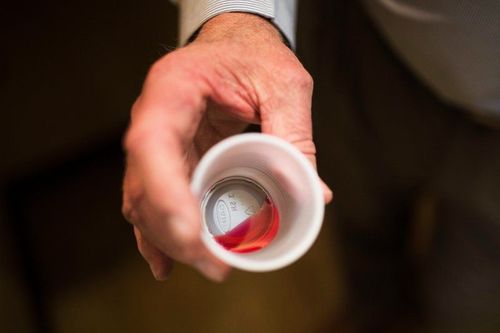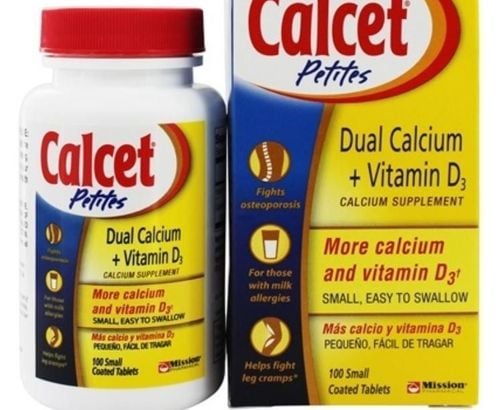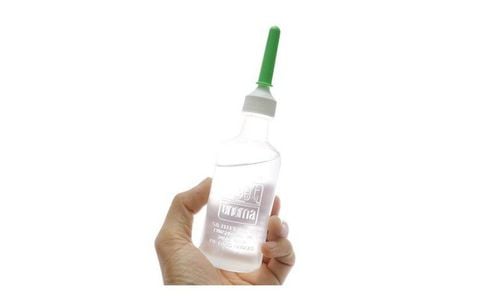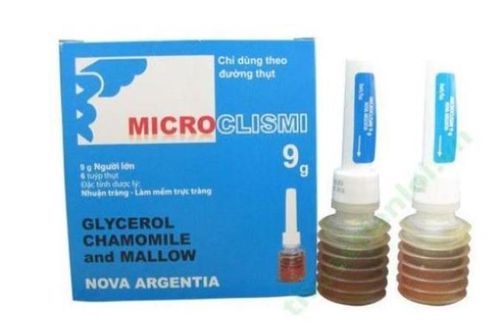This is an automatically translated article.
Posted by Doctor Pediatric Center - Vinmec Times City International Hospital
Due to the immature digestive system, children are often prone to gastrointestinal diseases, in which there are 5 most common digestive problems in young children including: Abdominal pain, Gastro-oesophageal reflux; Lactose intolerance; Diarrhea, Constipation.
1. Abdominal pain
Colic in babies can be caused by hunger, fatigue, or just being too full or bloated. The exact cause of abdominal pain may not be clear. In most cases, mild colic in a toddler won't make him eat or play less. With a moderate degree of colic, the child may grimace and be less active. But, if a child is lying on their knees and crying, they may have severe colic.
Most chronic colic in children is functional colic. That is, even though the pain is real, it may not be pathological. However, abdominal pain in children should not be ignored, especially when accompanied by other symptoms such as fever, vomiting, bloody stools, waking in the night with pain or pain when urinating. When children appear these symptoms, parents need to take the child to the doctor to rule out surgical diseases such as intussusception, appendicitis, intestinal obstruction ... or medical diseases such as acute pancreatitis, infection intestinal tract, digestive disorders...
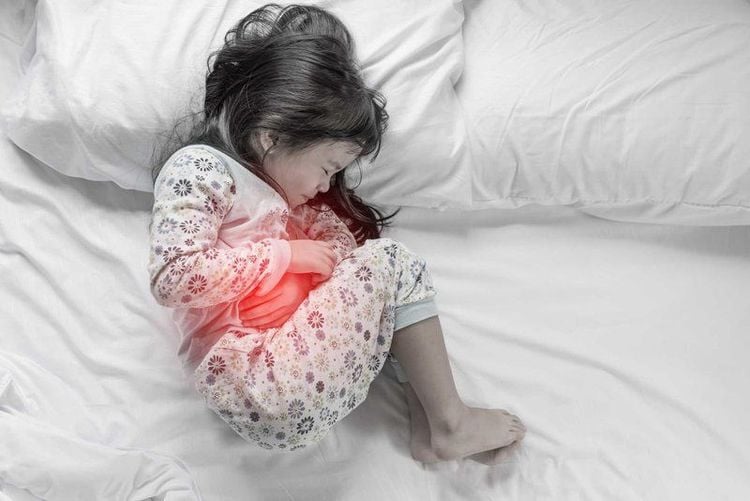
2. Gastroesophageal reflux in toddlers
It is also called gastroesophageal reflux disease (GERD). Reflux is the leakage of gastric juice or acid into the esophagus. Toddlers and older children with GERD may have any of the following symptoms:
Vague abdominal pain, around the navel and possibly chest pain. Nausea or dizziness. Feeling of food coming back up and needing to be swallowed again. Feeling that food is not moving down or stuck. Some children may have asthma-like symptoms such as coughing or wheezing, or these symptoms are made worse by reflux.
Diet is an important part of GERD management. The right diet can help prevent GERD. So instead of finding pain relievers for children, parents should try to avoid the following to prevent GERD in children:
Spicy, acidic or sour foods, citrus, apple juice, carbonated drinks , tea, coffee, hot chocolate, chocolate and licorice. Medicines such as aspirin, ibuprofen, and alcohol-containing products.
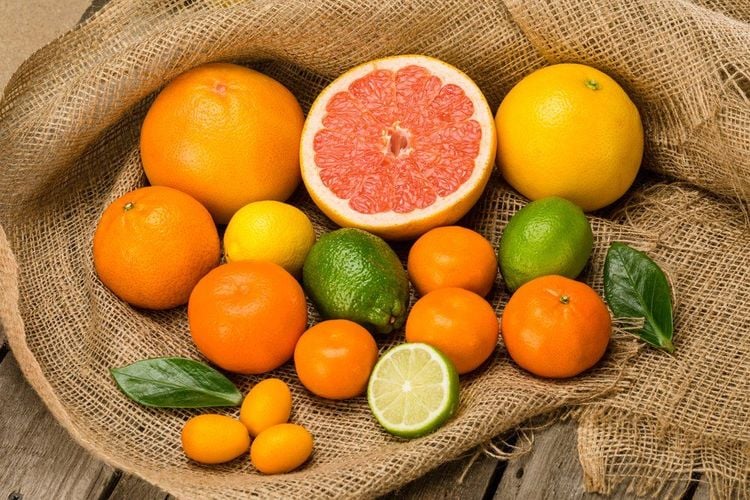
3. Lactose intolerance
Lactose is the sugar found in milk and dairy products. Lactase, a digestive enzyme produced by the small intestine, helps break down this complex sugar into two simple sugars. Lack or absence of lactase leads to lactose intolerance.
Lactose intolerance in children can be present from birth or develop for a short time due to rotavirus or giardiasis. The infection damages the lining of the intestines where enzymes are produced. However, when the intestinal lining returns to normal within three to four weeks, the lactose intolerance should go away.
A child with lactose intolerance may experience colic, frequent belching, stomach upset, bloating and diarrhea after drinking milk.
To prevent colic in children due to lactose intolerance, alternatives to cow's milk such as soy milk can be used. But get enough calcium in your diet. In the case of diarrhea caused by Giardia, antibiotic treatment should be combined with a reasonable diet.
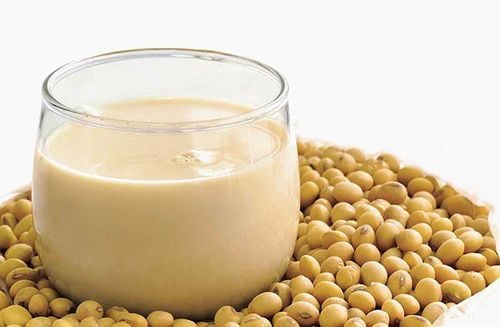
4. Diarrhea
Diarrhea in young children is caused by a viral, bacterial or parasitic infection. Acute diarrhea , commonly known as acute gastroenteritis, manifests as loose and frequent stools (>3 times/day)
Diarrhea in toddlers mainly causes dehydration and electrolytes prize. Young children with mild dehydration can be treated with oral rehydration solutions (ORS). Although juices, coke, and canned beverages are commonly used, they are no substitute for ORS, and can aggravate diarrhea. Children with severe diarrhea, vomiting and dehydration who cannot be rehydrated by oral means should be monitored and treated at a medical facility.
5. Constipation
Constipation is passing stools less than three times a week, having difficulty passing stools, or having large, hard stools. Constipation in children most often begins to appear when a child begins to eat solid foods, or when starting school, after a change in life circumstances, a change in caregivers, or a change in diet.
Toddlers with constipation may show symptoms such as crossing their legs, standing on their toes, or squeezing their buttocks to try to avoid defecation. Constipation can cause abdominal pain, anal fissures, bloody stools, and decreased appetite and activity.
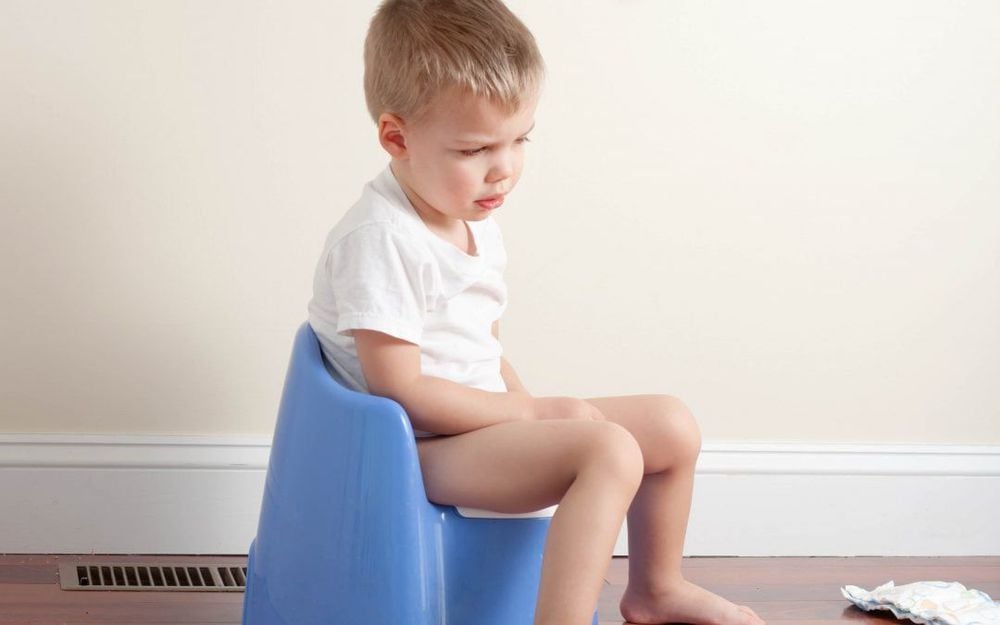
Constipation in children can be treated through education, behavior modification, dietary changes and the formation of bowel habits. Eating foods rich in fiber, including whole grains, apricots, apples, pears, melons, beans, broccoli, carrots, beets, cauliflower, bread and pasta... often works. with children with constipation. Increasing the patient's physical activity also helps promote regular bowel movements and relieve constipation.
If there are abnormal signs of the digestive tract, parents need to take the baby to the hospital immediately to avoid dangerous complications. At Vinmec International General Hospital, gastrointestinal endoscopy is performed to accurately diagnose the disease, help devise a scientific treatment regimen, and limit complications. In addition, the hospital is synchronously equipped with the most modern flexible endoscopic system of Olympus - Japan, a prestigious manufacturer of the world's leading quality. The foot pedal irrigation system helps the doctor to take the initiative in irrigating the patient's gastrointestinal tract.
To register for examination and treatment at Vinmec International General Hospital, you can contact the nationwide Vinmec Health System Hotline, or register online HERE.




